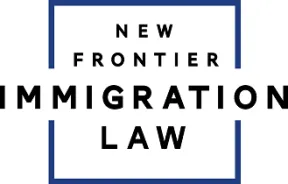
You can file an Immigration Hardship Waiver to petition the U.S. Citizenship and Immigration Services (USCIS) to allow you to stay in or enter the country to take care of an immediate family member who is legally allowed to be in the U.S. The reason for your waiver is that your family member cannot provide for themselves, and they would suffer “extreme hardship” if you were not allowed in the country.
Here’s what you need to know about the Immigration Hardship Waiver.
Who Qualifies for an Immigration Hardship Waiver?
The Immigration Hardship Waiver is another chance for those who’ve been denied an immigrant visa, permanent residency, or another immigration status change. In general, if you’ve been deemed inadmissible, meaning you’re not admitted to enter or stay in the U.S., you may be able to file Form I-601 or Form I-601A.
Here are some of the qualifications for an Immigration Hardship Waiver:
- Applying for an immigrant visa, K visa, and nonimmigrant V visa
- Found “inadmissible” during your immigration/visa interview
- Applying for Temporary Protected Status
The must-have qualification for this waiver is to have at least one relative in the U.S. (or who has been granted entry into the U.S.) who relies on you financially. If this person cannot take care of or provide for themselves, you can use them as a claim for your waiver application.
Alternatively, you may be able to petition for a loved one to come with you to the U.S. if they would suffer extreme hardship where they are, and you came to the U.S. without them.
An immigration lawyer can help you determine if you meet these or other qualifications to request a hardship waiver.
Differences Between Form I-601 and Form I-601A
The main difference between these two forms is where you’re located at the time of your application.
- Form I-601, Application for Waiver of Grounds of Inadmissibility is for those who are applying from outside the U.S. They must file this form, attend another consular interview in their home country, and wait for a decision.
- Form I-601A, Application for Provisional Unlawful Presence Waiver is for those who are currently in the U.S., have stayed without proper authorization, and are applying to stay in the country temporarily while waiting for approval to get a visa or legal status. Essentially, you file this to remove the three- or ten-year bar on your entry due to living in the country without proper authorization.
For a free case review , call
How USCIS Defines “Extreme Hardship”
USCIS and the immigration system define “extreme hardship” as hardship that would be much worse and more challenging than the relative would experience if you were with them. In other words, it means that they need you to survive, stay healthy, have a roof over their head, get food, and more. A lack of emotional support, homesickness, and similar challenges don’t count as “extreme hardship”.
There are no laws that establish what extreme hardship is; it can vary from applicant to applicant. That’s why USCIS reviews the specific circumstances for each waiver.
You may be able to use the following situations as grounds for your Immigration Hardship Waiver:
- The relative has a medical condition that they cannot manage on their own.
- The relative relies on you financially and you won’t be able to support them financially if you are living abroad.
- The relative has U.S.-based debts that you help them manage and pay.
- The relative needs your help to take care of another loved one who is ill or incapacitated.
- The relative cannot afford childcare and needs you to provide childcare for them.
- The relative has been diagnosed with depression as a result of their immigration process.
How to File an Immigration Hardship Waiver Form
If you were deported from the U.S., you must submit Form I-601 with a completed Form I-212, Application for Permission to Reapply for Admission into the United States After Deportation or Removal. If you’re filing Form I-601A, you should not send it with any other applications.
Include relevant evidence to prove your argument, such as:
- Official reports or news articles on human rights violations or other dangers in your home country as they relate to why you’re petitioning
- Medical records and official doctor’s notes if your argument is medical
- Financial documents, like tax returns, income statements, or debt statements
Don’t send original copies of evidence as they may not be returned once it gets to USCIS.
Pay the filing fee. It costs $930 to file Form I-601, and it costs $630 to file Form I-601A. You may also need to pay additional fees for biometrics and other services for the application process.
Our immigration lawyers
An Immigration Lawyer Can Help You File an Extreme Hardship Waiver
The team at New Frontier Immigration Law can help you gather evidence, build an argument, and help you complete your Immigration Hardship Waiver application. We can also explore all of your options, no matter if you’re approved or denied. Contact our office for a free strategic session with an immigration lawyer from our firm.





